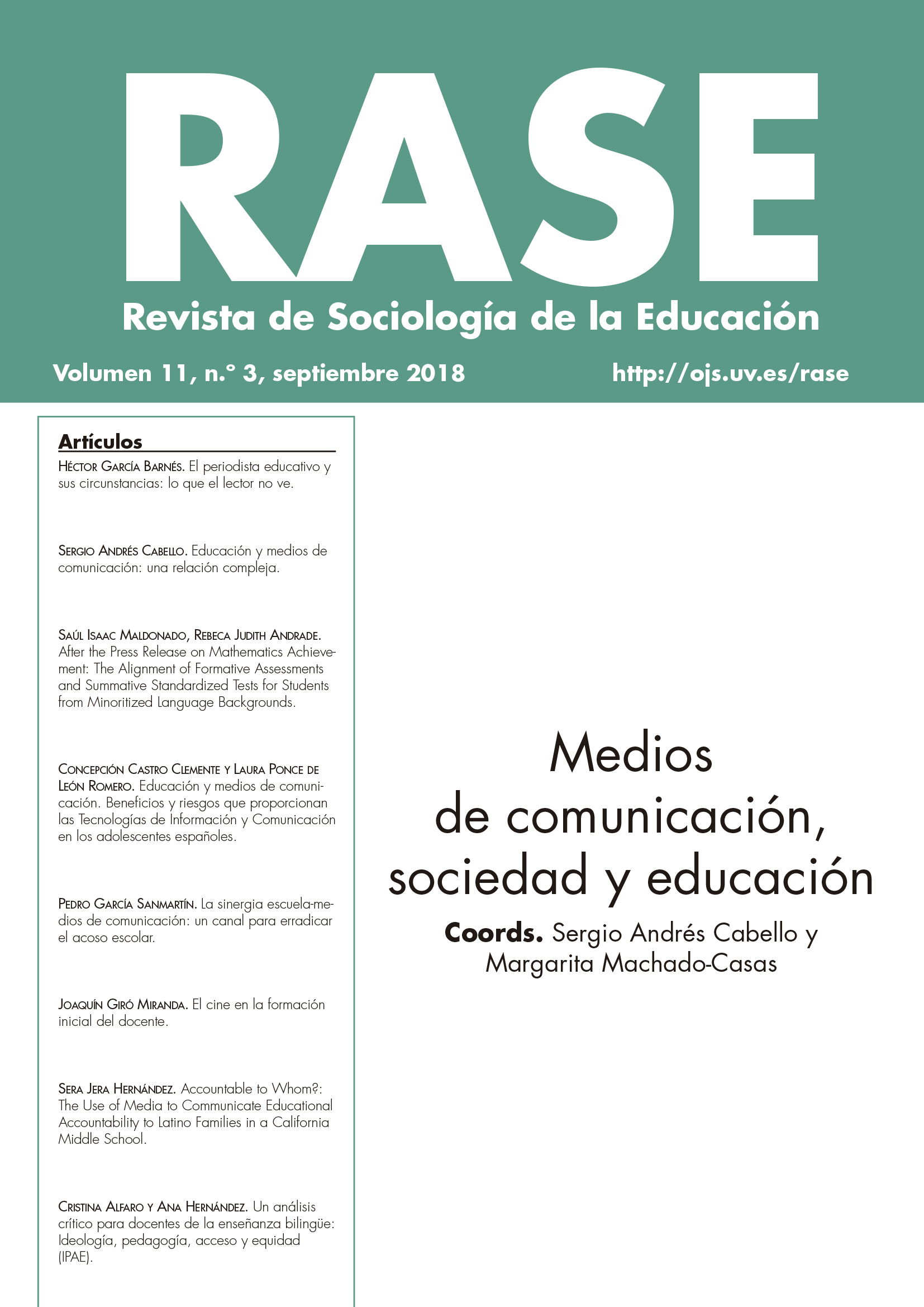After the Press Release on Mathematics Achievement: The Alignment of Formative Assessments and Summative Standardized Tests for Students from Minoritized Language Backgroundsdized tests for students from minoritized language backgrounds
DOI:
https://doi.org/10.7203/RASE.11.3.13054Keywords:
Standardized test scores, formative assessment, bilingual students. Abstract
Abstract
Media coverage often reports standardized test scores as indicative of global competitiveness and journalists frequently frame the mathematics achievement of U.S. students using a discourse of failure, particularly for students from minoritized backgrounds. Informed by research literature on: (a) formative and summative assessment, (b) the interdependence of language and mathematics, and (c) a sociopolitical stance for researching students from minoritized language backgrounds, this study analyzed the linguistic alignment of mathematics assessments. Results from this study show how alignment between formative assessment processes and summative standardized tests influences performance on high-stakes exams. Findings call into question the incomplete media coverage of students’ achievement trends that perpetuate stereotypes of failure and advocate for a national formative assessment program in the United States.
 Downloads
Downloads
Downloads
Published
How to Cite
-
Abstract692
-
PDF261
Issue
Section
License
![]()
This work is licensed under a Creative Commons Reconocimiento-NoComercial-CompartirIgual 4.0 Internacional.




